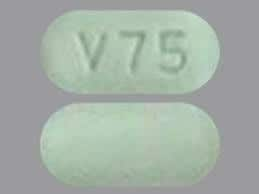What is Gemtesa?
Gemtesa is a prescription medicine for adults used to treat the following symptoms due to a condition called overactive bladder:
- urge urinary incontinence: a strong need to urinate with leaking or wetting accidents
- urgency: the need to urinate right away
- frequency: urinating often
It is not known if Gemtesa is safe and effective in children.
Who should not take Gemtesa?
Do not take Gemtesa if you:
- are allergic to vibegron or any of the ingredients in Gemtesa. See the end of this guide for a complete list of ingredients in Gemtesa.
What should I tell my healthcare provider before taking Gemtesa?
Before you take Gemtesa, tell your doctor about all of your medical conditions, including if you:
- have liver problems.
- have kidney problems.
- have trouble emptying your bladder or you have a weak urine stream.
- take medicines that contain digoxin.
- are pregnant or plan to become pregnant. It is not known if Gemtesa will harm your unborn baby. Talk to your doctor if you are pregnant or plan to become pregnant.
- are breastfeeding or plan to breastfeed. It is not known if Gemtesa passes into your breast milk. Talk to your doctor about the best way to feed your baby if you take Gemtesa.
Tell your doctor about all the medicines you take, including prescription and over-the-counter medicines, vitamins, and herbal supplements.
Know the medicines you take. Keep a list of them to show your doctor and pharmacist when you get a new medicine.
How should I take Gemtesa?
- Take Gemtesa exactly as your doctor tells you to take it.
- Take 1 Gemtesa tablet, by mouth, 1 time a day with or without food.
- Swallow Gemtesa tablets whole with a glass of water.
- You may also crush Gemtesa tablets, mix with 1 tablespoon (about 15 mL) of applesauce, and take right away with a glass of water.
What are the possible side effects of Gemtesa?
Gemtesa may cause serious side effects including:
- inability to empty your bladder (urinary retention). Gemtesa may increase your chances of not being able to empty your bladder, especially if you have bladder outlet obstruction or take other medicines for treatment of overactive bladder. Tell your doctor right away if you are unable to empty your bladder.
The most common side effects of Gemtesa include:
- urinary tract infection
- headache
- nasal congestion, sore throat or runny nose
- diarrhea
- nausea
- upper respiratory tract infection
These are not all the possible side effects of Gemtesa. For more information, ask your doctor or pharmacist.
Call your doctor for medical advice about side effects. You may report side effects to FDA at 1-800-FDA-1088.
Gemtesa Images
General information about the safe and effective use of Gemtesa
Medicines are sometimes prescribed for purposes other than those listed in a Patient Information leaflet. Do not use Gemtesa for a condition for which it was not prescribed. Do not give Gemtesa to other people, even if they have the same symptoms that you have. It may harm them.
You can ask your doctor or pharmacist for information about Gemtesa that is written for health professionals.
How should I store Gemtesa?
- Store Gemtesa at room temperature between 68°F to 77°F (20°C to 25°C).
- Safely throw away medicine that is no longer needed in your household trash.
- You may also dispose of the unused medicine through a take-back option, if available. See www.FDA.gov/drugdisposal for more information.
Keep Gemtesa and all medicines out of the reach of children.
What are the ingredients in Gemtesa?
Active ingredient: vibegron
Inactive ingredients: croscarmellose sodium, hydroxypropyl cellulose, magnesium stearate, mannitol, and microcrystalline cellulose. The light green film coating contains FD&C Blue No. 2 - aluminum lake, hypromellose, iron oxide yellow, lactose monohydrate, titanium dioxide, and triacetin.
For more information, go to WWW.GEMTESA.COM or call 1-833-876-8268.





